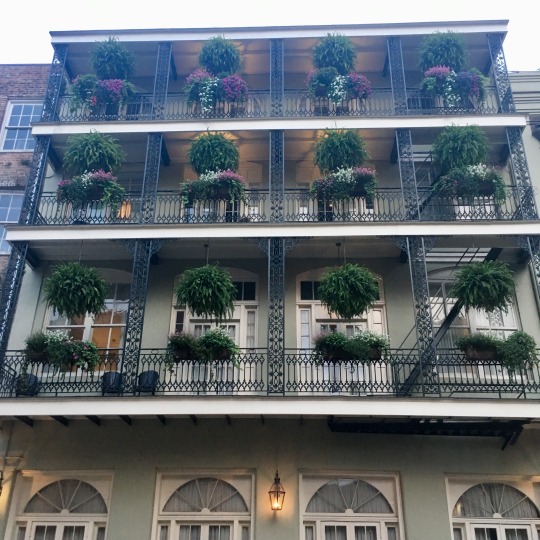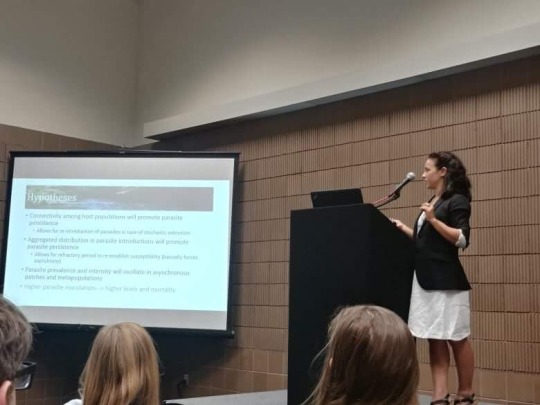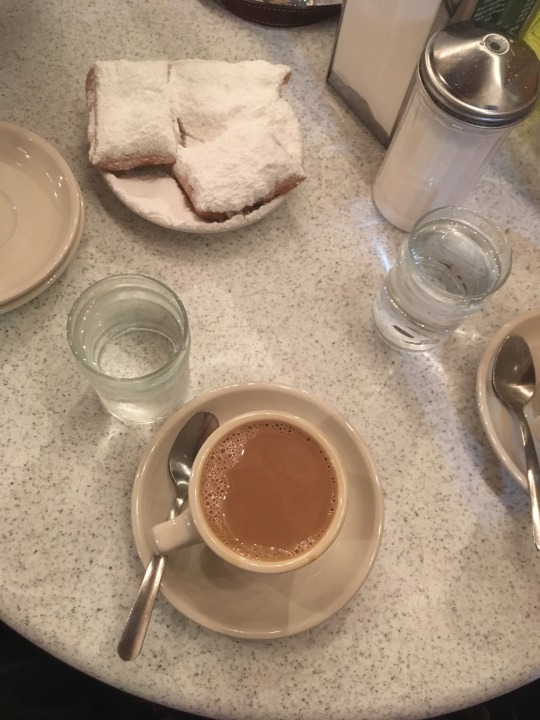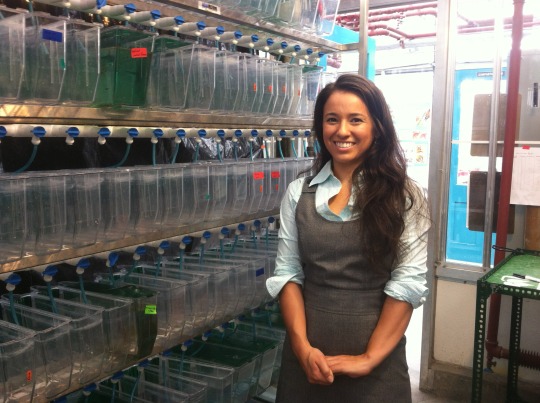by Christina Tadiri
Last summer, I attended the Ecological Society of America’s annual meeting in New Orleans, Louisiana U.S.A. As one of the largest international ecology meetings, it was a great opportunity for me to connect with other researchers in my field, learn about their work and present my own. With thousands of participants, I was able to attend several sections of talks in my own research specialty, Disease and Epidemiology, as well as some in Host-Parasite relations. The meeting itself ran for four days, with sections in each of those topics every morning and afternoon.

An example of some of the classic architecture and lush plant-life in the French Quarter
I was there to present a talk in the Disease and Epidemiology section. The work I presented serves as a chapter of my thesis, in which I examined how heterogeneity (intraspecific biodiversity) affects parasite dynamics on individuals, populations and metapopulations using guppies (Poecilia reticulata) and their ectoparasite Gyrodactylus turnbulli as a model system. In this particular experiment, I looked at how connectivity and parasite introductory distribution impact parasite persistence and host health outcomes across metapopulations. I found that connectivity benefits parasite persistence across the broader metapopulation, but that when parasites are introduced in large quantities, the hosts also benefit from connectivity and reduce their burden of disease. The large contingent of disease ecology researchers at this conference allowed me to share my research with peers and experts in one-on-one conversations and get feedback on my results, as well as generate interest in the paper which I had just published at the time.

Me giving my talk in the Disease and Epidemiology section, which spanned almost every afternoon, a first for me at ecology conferences (photo cred. Emma Hudgins)
The conference setting was also exciting for me, since New Orleans had been on my bucket list for a while. During downtime, I had the chance to explore the city with a friend from the McGill Biology department who was also attending the conference. As a city with a rich and diverse history, there were so many interesting neighbourhoods and architecture to take in, live music to watch and food to eat. Thanks to QCBS supporting my travel for the conference, I was able to spend a bit of my own money to stay an extra weekend and explore all the city had to offer.

Late-night coffee and beignets at the iconic Café du Monde, just a small sample of the amazing and unique food available in New Orleans
In short, my Excellence Award provided me with a great opportunity to communicate my research to a broad audience and to connect with scientists in my field from all over the world in a beautiful city.
Thank you QCBS!

Christina Tadiri just finished my PhD in Biology in the Fussmann and Scott labs at McGill University, looking at epidemic dynamics in metapopulations using guppies and their ectoparasites Gyrodactylus turnbulli as a model system. She investigated the role of various types of population heterogeneity in the spread of infectious disease and I’m broadly interested in the interaction of the physical and social environments and their effects on health. This fall, she will be starting a post-doc at the McGill University Health Centre investigating gender-based discrepancies in chronic disease outcomes (for humans).

0 Comments